SORGERÄUME
An ethnographic filmproject
Hard Facts
project duration: February - September 2024
funding: LBG Open Innovation in Science Impact Lab
project leader: Sanderien Verstappen
team: Elaine Goldberg, Helen Vaaks
-
project description
The ethnographic film project "Sorgeräume" is a cooperation between the Vienna Visual Anthropology Lab and the Ludwig-Boltzmann-Gesellschaft. Under the project supervision of Sanderien Verstappen, Elaine Goldberg and Helen Vaask will be conducting camera-based ethnographic research in the LBG Open Innovation in Science Impact Lab "Caring Communties for Future". The focus will be on care practices and transdisciplinary research processes. The outcome will be a short film.
Über Krisen reden - Making sense of multiple crises
Wie ältere Menschen in Wien Pandemie, Ukraine-Krieg, Energiekrise und drohende Altersarmut narrativ verarbeiten
Hard Facts
project duration: 2023 - 2024
funding: MA7, Stadt Wien
project lead: Monika Palmberger
team: Barbara Götsch
Europe-Asia Research on Forced Migration
Hard Facts
project duration:
Phase I 2019-2021: "Annual Research and Orientation Programme in Migration and Forced Migration Studies with Particular Focus on South Asia and its European-Asian Dimension."
Phase II 2021-2023: "Justice, Protection and Government of the People. A Two-Year Research and Orientation Programme on Protection and Democracy in a Post-COVID World."
funding: Foundation of Open Society
project leaders: Ayse Caglar (IKSA und IWM), Ranabir Samaddar (Mahanirban Calcutta Research Group)
team: Ana Cukovic
website: https://www.iwm.at/program/europe-asia-research-platform-on-forced-migration
-
project description
The Europe-Asia Research on Forced Migration is a collaboration between the Institut für die Wissenschaften vom Menschen (Institute for Human Sciences, IWM) and Mahanirban Calcutta Research Group (MCRG). The first research project "Annual Research and Orientation Programme in Migration and Forced Migration Studies with Particular Focus on South Asia and its European-Asian Dimension" (2019 until 2021) focuses on establishing the collaboration and cooperation between European and Asian institutions and academics. It was established to foster working toward innovative knowledge production on forced migration and bordering regimes. Series of activities and workshops aim to enhance research capacities and facilitate the exchange of knowledge and policy expertise in forced migration studies in and between Europe and Asia. Bringing together scholars, policy makers and practitioners from different disciplines and regions, the platform aspires to decentering scholarship, debates, and policies on forced migration. The project continues through "Justice, Protection and Government of the People. A Two-Year Research and Orientation Programme on Protection and Democracy in a Post-COVID World" grant until Summer 2023.
The Europe-Asia Research hosts Seminar Series on Forced Migration at the University of Vienna. The events bring speakers from a range of disciplines and scholarship interests to discuss multiple geographical and temporal dimensions of migration. Topics ranging from changing regimes and forms of governance of migrants/refugees; the solidarity networks and demands for social justice entangled with increasing inequalities, austerity politics, and racism; the institutional components regulating and managing different forms of displacement; incorporation and exclusion of refugees and migrants from labor markets and protection regimes along the lines of gender, race, religion, and work among others. The Seminar Series aims to expand current knowledge on the specificities of policies and debates on refugees and migrants in the context of forced migration and bordering regimes.
Living right
An anthropological study of far-right activism
Hard Facts
project duration: September 2018 - September 2022
funding: Elise Richter Programme (FWF)
project leader: Agnieszka Pasieka
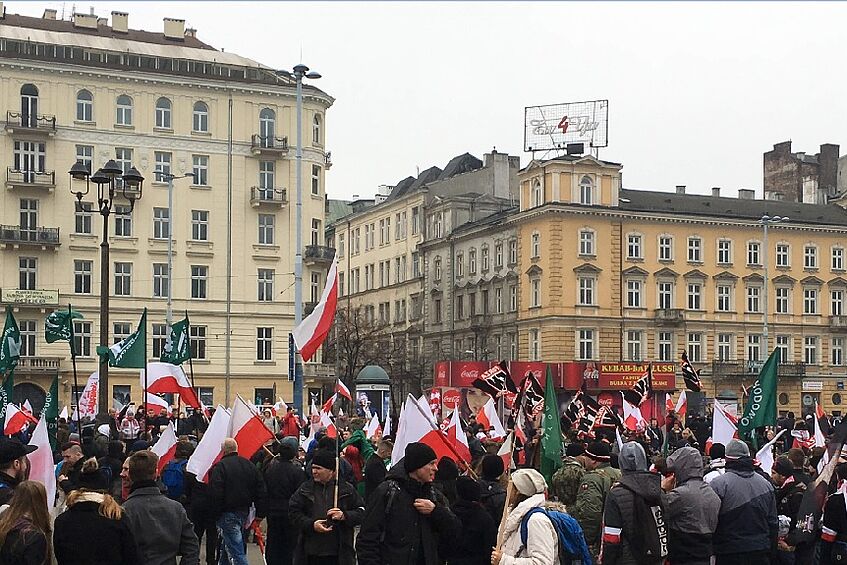
© Agnieszka Pasieka
-
project description
This project seeks to investigate new forms of civic engagement pursued by far-right movements and to understand their increasing appeal among “ordinary,” socially established citizens. Instead of studying extreme right political parties or subcultures, the predominant topics in current scholarship, I will look closely at day-to-day activism, using hitherto neglected anthropological methodologies that offer unique insights into the motivations for involvement and the relations between ideas, beliefs and practices. Focusing on far-right groups acting within and between several European countries, the project will investigate the processes of translation between locally grounded and transnational far-right practices and ideologies and the tensions produced as they try to orient themselves around both transnational and local concerns.
Combining participant observation with life stories interviews and a study in the history of ideas, the project aims to explore moral claims and lived experiences of present-day far-right activists. In so doing, it calls into question well-established categorizations (West/East, moral/immoral), emphasizes the importance of emic understandings and motivations of far-right actors, and investigates the different facets of far-right organizations, which, contrary to the common label “hate groups,” increasingly put forward “humanitarian” claims and “positive” visions (of community, society, the future). It aims to bring greater clarity to political discussions within Europe by problematizing a simplistic right-left binary that obscures the nuances of different and overlapping political positions. In addition to making a critical methodological and theoretical contribution to the study of a resurgent European far right, this project will also engage with a set of more enduring issues—the shifting understanding of social solidarity and reciprocity, different means of civic engagement, and the place of morality in politics.
Nunataryuk
Hard Facts
project duration: 2017 - 2023
funding: EU Horizon 2020, BG-2017-1
project leader: Peter Schweitzer
team (at IKSA): Olga Povoroznyuk, Susanna Gartler, Alexandra Meyer
website: nunataryuk.org
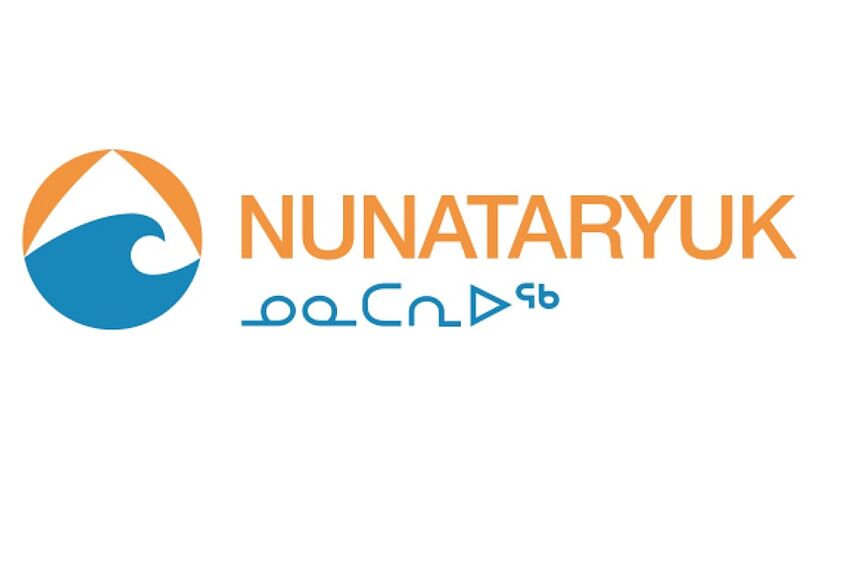
-
project description
Most human activity in the Arctic takes place along permafrost coasts and these coasts have become one of the most dynamic ecosystems on Earth. Permafrost thaw is exposing these coasts to rapid change, change that threatens the rich biodiversity, puts pressure on communities and contributes to the vulnerability of the global climate system. NUNATARYUK will determine the impacts of thawing coastal and subsea permafrost on the global climate, and will develop targeted and co-designed adaptation and mitigation strategies for the Arctic coastal population.
NUNATARYUK brings together world-leading specialists in natural science and socio-economics to:
- develop quantitative understanding of the fluxes and fates of organic matter released from thawing coastal and subsea permafrost;
- assess what risks are posed by thawing coastal permafrost, to infrastructure, indigenous and local communities and people’s health, and from pollution;
- use this understanding to estimate the long-term impacts of permafrost thaw on global climate and the economy.
NUNATARYUK will be guided by a Stakeholders’ Forum of representatives from Arctic coastal communities and indigenous societies, creating a legacy of collaborative community involvement and a mechanism for developing and applying innovative evidence-based interventions to enable the sustainable development of the Arctic.
Interactions in Anthropology
Frankfurt and Vienna before the mid-20th century
Hard Facts
project duration: Februay 2019 -
funding: Elise Richter Programm (FWF)
project leader: Katja Geisenhainer
-
project description
By contrast to their rather transitory relations with colleagues at other German universities, Viennese ethnologists’ interactions with their Frankfurt counterparts were quite dense. They encompassed various academics of both cities at different stages between the time after World War I until the late 1940s. On closer inspection, it seems that a shared approach may be one main reason for this. Whereas other ethnologists represented functionalist, psychological or other approaches, which usually were oriented towards the present, in Vienna and in Frankfurt they mainly took a cultural-historical stand. Some of their basic assumptions could differ, however, such as theological or racist premises. The cultural-historical concept often was based on the examination of “culture circles” or “culture-areas” with centres of dissemination (i.e. diffusion)- This was one of the significant directions of Völkerkunde in Austria and Germany and influenced other disciplines such as folklore, archaeology, prehistory or art history.
In particular, the aim of this project is to clarify the importance inherent to very different cultural historical approaches for various contacts between ethnologists from Vienna and Frankfurt during three decades. This question will be examined through a number of issues. To name just a few of them: How did the respective relationships develop when both countries were temporarily adopting different political systems? What happened once the relevance of “racial science” was discussed within the discipline? How did the colonial revisionist stance advocated by most ethnologists influence these relationships? With regard to the Nazi era, it should be investigated how the dictatorship had an impact on the research approaches and to what degree the respective attitudes to the regime influenced relationships between the scholars. To what extent could the cultural historical approach bridge political and ideological differences between individual representatives?
This study is based on documents from a number of archives, and on academic publications such as biographical and historical studies or contributions to the history of this academic field. Individual academics and their works are considered in the contexts of their networks and under the respective influence of social, political, national and international as well as regional circumstances. The project should also make a general contribution towards the question how closely personal relations, academic work and political loyalties were connected and what could be the significance of these connections in times of crisis and of totalitarian regimes.
DIGITClue
Digital Inclusion in Teacher Education
Hard Facts
project duration: June 2021 - May 2023
funding: Erasmus+ Projekt Strategische Partnerschaft
project leader: Wolfgang Kraus
team: Christa Markom, Jelena Tosic, Magdalena Steger
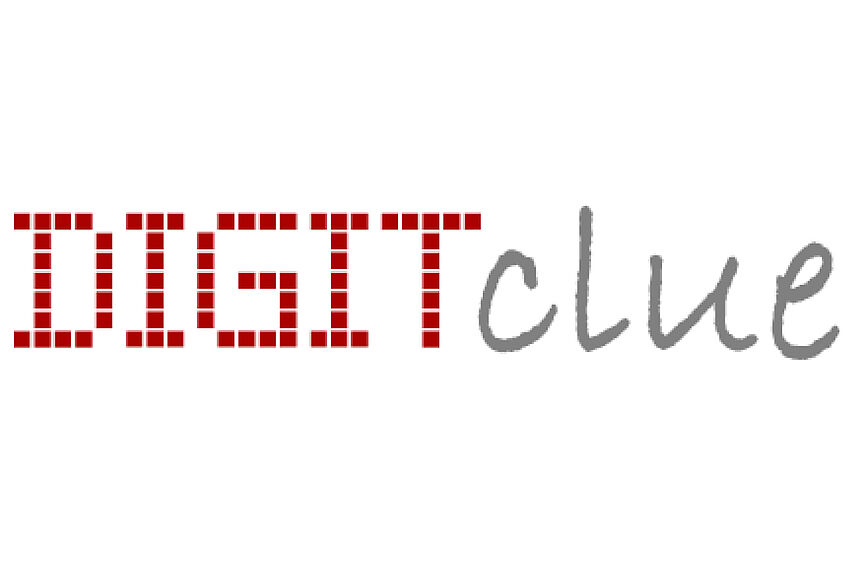
-
project description
Education is a powerful tool for building inclusive and pluralistic democratic societies. Democratic principles, including i.a. gender and racial equality, freedom of speech and religion, equality and acceptance of different sexual orientations do not come naturally. They need to be taught. Further, different scholars have demonstrated how experiences of discrimination and exclusion negatively affect students’ performance at school, if not their motivation to attend school in the first place. Considering these challenges in European Societies the project’s general aim is to enhance the quality of teaching to support the creation of inclusive schools that will provide young people with the necessary skills to participate in the democratic life and global knowledge. The idea of DIGITclue is to provide teachers with the skills, knowledge and tools to deploy ICT-based interactive and e-learning technologies for inclusive teaching.
The project will link the latest research findings on inclusive pedagogies, ICT-based learning tools and transcultural education to develop software applications for teacher education. One core and innovative aspect of the project consists in ensuring the inclusion of teachers with special needs, multilingual teachers or hard-to-reach teachers who work in remote and marginalized areas, in every step of the development and delivery of educational material.
Snow2Rain
From phase transition of precipitation to changing local livelihoods, emotions and affects in East Greenland
Hard Facts
project duration: 2019-2023
funding: Austrian Academy of Sciences
project leaders: Wolfgang Schöner (Universität Graz), Peter Schweitzer (at IKSA)
team (at IKSA): Anna Burdenski, Sophie Elixhauser
website: https://www.snow2rain.com

-
project description
Snow, ice and water from their melt are not only physical phenomena, but build also the foundation of life, culture and sociality in the Arctic. In particular, snow plays a central role in the cultures of indigenous Arctic people, e.g. for the reindeer herders of Eurasia which have developed a holistic snow terminology (integrating the effects on the ecology, grazing opportunities, and management of the herd). This holistic terminology clearly differs from scientific standard terms. However, the combination of Traditional Ecological Knowledge (TEK) with natural science snow observations and analysis captures high potential of synergies and will guide strategies for a sustainable future of Arctic people in a changing climate. TEK in general is recognized by the Arctic Council as an important source for better understanding the Arctic environment and its changes (Arctic-Council 1996). In recent years, the reindeer herders snow terminology and its relationship to natural science snow research have been subject to several studies. However, the potential to significantly increase the understanding of changing Arctic environment in East-Greenland in the framework of an interdisciplinary study based on the TEK of Greenlandic Arctic people for snow and ice together with social anthropology and (natural science) climatology approaches was not explored until today. Such an approach appears particular promising for the East Greenlandic region (Ammassalik/Tasiilaq region) where indigenous people are much more connected with traditional live (hunting, dog-sledging, fishing, ancient traditional customs) than elsewhere and with an only slowly growing tourism, meaning that there live and TEK is much more connected to nature and its challenges, such as weather, snow, ice and related changes over time and space. This is the general objective of Snow2Rain project.
Economic Enterprises and their Critics
Efforts to Mitigate the Negative Impact of Large-Scale Agricultural Investments in Africa
Hard Facts
project duration: September 2017 - 2022 (since 2019 at IKSA)
funding: DFG
project leader: Tijo Salverda
team: Eline Castelijns
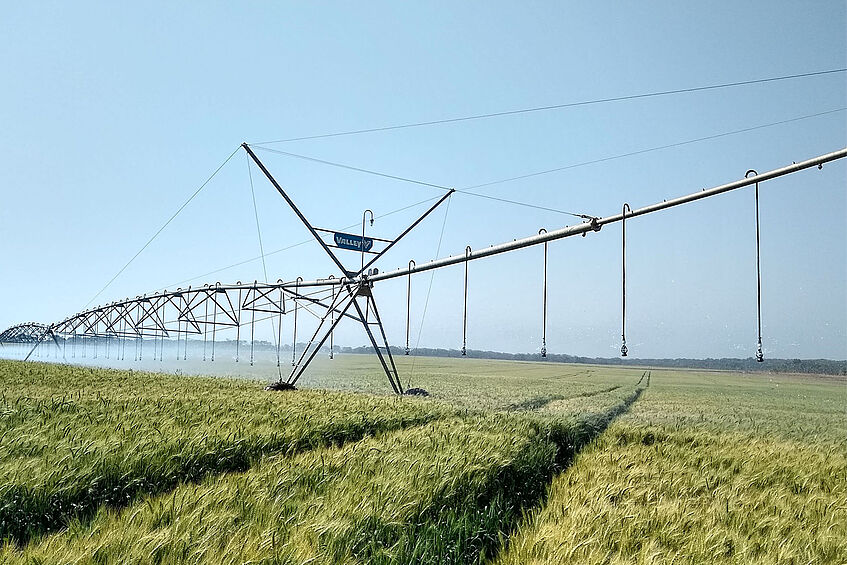
-
project description
Agricultural investments in Africa are under substantial pressure from an international movement of critics that has raised concerns about the negative impact of large-scale land acquisition and commercial agriculture in the Global South. Investors often have to respond to these concerns, to the extent that they may feel pressured to (partly) change their practices. Yet how investors and corporations (i.e. economic enterprises) interact with their critics, such as NGOs, rural populations, social movements, journalists, and (activist) scholars, receives relatively little theoretical or empirical attention in anthropology and to a large extent also in the other social sciences.
Notwithstanding that economic enterprises face more (international) pressure to minimise the negative impact of their practices than seems to be acknowledged, the outcomes of the interactions between them and their critics are highly ambiguous. To better explain this ambiguity the proposed project will focus on a large foreign investment in Zambia. The investment offers a perfect case study for a closer investigation of how economic enterprises balance economic and moral concerns, and whether, why, and how their practices change (or not) as a result of pressure they face.
To better explain the limits and potentials of the interactions between economic enterprises and their critics the project combines two main objectives: The first objective is to obtain an empirical understanding of how the foreign investor balances economic and moral/ethical concerns, in particular in reflection upon the pressure it faces from critics, both directly targeting the investor and within the global arena more generally. The investment offers a welcome case study for analysing how processes and outcomes result from interactions between different scales, i.e. the realities on the ground; logics at the funds headquarters, the role of other relevant actors abroad, such as NGOs, politicians, and development agencies; and global interactions between corporate actors and critics more generally. As such, the project aims to offer an integrated analysis incorporating both what happens on the ground and the global dimensions of a countermovement of critics. The second objective is to build a theoretical argument based upon insights gained through the lens of the empirical case study. Anthropologists have devoted substantial attention to concerns about (global) market society, yet how economic enterprises react to criticism has so far received relatively little attention in (economic) anthropology, notwithstanding the analytical tools Polanyi’s (2001) double movement offers and the attention his ideas continue to receive. Apart from contributing to theory development in (economic) anthropology, the intention is to also speak to debates in other disciplines, such as economics, development studies and geography.
REFUGEeICT
Multi-local Care and the Use of Information and Communication Technologies Among Refugees
Hard Facts
project duration: August 2018 - 2022
funding: Elise Richter Programm (FWF)
project leader: Monika Palmberger
-
project description
Since the Arab Spring in 2010 and the subsequent crises and wars, many people from Syria, Iraq and Afghanistan have sought refuge in Austria, with a peak in 2015. By accepting around 89,000 asylum seekers in 2015, Austria became the fourth most important host country in the European Union. Prevailing political discourses and media representations depicting the refugee both as a problem and as a suffering subject accompanied their reception, thereby reducing and restricting them to the roles of “the other” and of “care recipients”. The various care relations refugees foster, including their role as active “care providers,” have generally been left out of focus.
The REFUGEeICT project addresses the urgent need to study the life worlds of recently arrived asylum seekers and refugees from Syria, Afghanistan and Iraq in Vienna by investigating the responsibilities and care relations they maintain in this specific urban context and in view of wider national and supra-national refugee policies. In particular this study explores the Internet in connection with the mobile phone and how these new communication technologies are adopted to maintain care relations across distances but also to meet care responsibilities in the new country of residence.
The two central questions of this study are: How can we understand the manifold care relations refugees are involved in? And what are the specific meanings of as well as practices and strategies involving new Information and Communication Technologies (ICTs) as “media of care”? The study will explore refugees’ interpersonal (kin) care relations as well as refugees’ interactions with the state and non-governmental institutions that provide social services and how these realms influence each other. Moreover, it will give detailed insights into the specific role new ICTs play in these care relations.
Configurations of “remoteness” (CoRe)
Entanglements of Humans and Transportation Infrastructure in the Baykal-Amur Mainline (BAM) Region
Hard Facts
project duration: July 2015 - December 2020
funding: FWF
project leader: Peter Schweitzer (Scientific Lead)
team: Alexis Sancho-Reinoso, Olga Povoroznyuk, Gertrude Saxinger, Sigrid Wentzel, Christoph Fink (no longer active)
student collaboration: Gertraud Illmeier, Ilya Krylov
website: http://core.univie.ac.at/
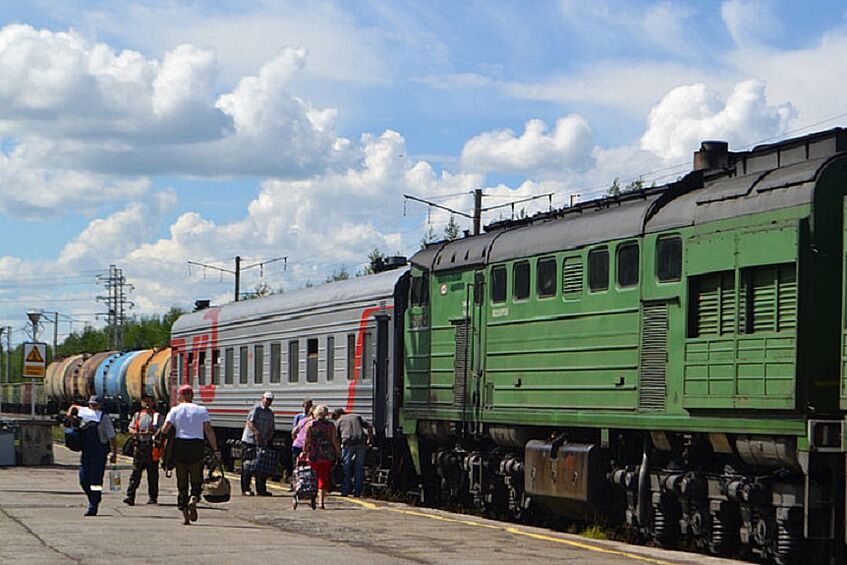
© Olga Povoroznyuk
-
project description
The Arctic and Subarctic have gained a surprising amount of attention in recent years. What used to be the ‘remote’ backwaters of global economic and political currents has morphed into a new frontier of geopolitics, resource extraction, and developmental designs. New transportation infrastructure often plays a critical role in the transformation of ‘remoteness’. The effects of new transportation infrastructures – accessibility, the shrinking of social and physical distance, the increased speed of connection – are not uncontested. On the one hand, those for whom ‘remoteness’ has been an asset, are often among the opponents of such developments. New transportation infrastructures are often not built to make the lives of local residents easier but to move cargo from point A to point B. Thus, there are ‘winners’ and ‘losers’ of such infrastructural developments.
TRANSCA
Translating Socio-Cultural Anthropology into Education
Hard Facts
project duration: September 2018 - August 2020
funding: Erasmus +
project leader: Wolfgang Kraus
team: Christa Markom, Jelena Tosic
website: https://transca.univie.ac.at/
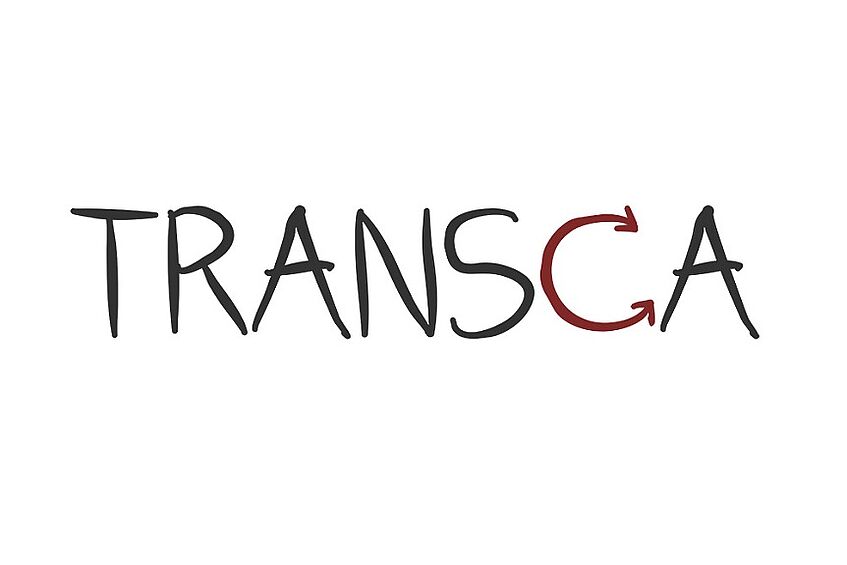
-
project description
TRANSCA is a project that will state what social anthropology can do for education as a sustainable response of the European educational sphere to on-going and new societal challenges such as diversity, immigration, socio-economic disparities and exclusionary politic.
TRANSCA is a strategic partnership with the goal of further developing the cooperation between teacher education and socio-cultural anthropology in order to address the crucial issue of social inclusion in schools by implementing e.g. tools for self-reflexivity and hierarchical positionality.
TRANSCA aims to promote, and in some countries initiate, the process of transferring relevant aspects of socio-cultural anthropological knowledge into teacher education in Europe by building on existing approaches and experiences and adding new and innovative didactic assessments and practices with regard to core societal issues and social science concepts (such as interculturality, diversity, migration, integration, gender, intersectionality etc.).
Partizipationsräume und Migrationsbiographien zugewanderter Roma/Romnja in Wien
Hard Facts
project duration: January –December 2019
funding: Magistratsabteilung 7, Stadt Wien
project leader: Robert Pichler (Institute for modern and contemporary historical research, ÖAW)
team: Sabrina Steindl-Kopf, Sanda Üllen
website: https://www.oeaw.ac.at/en/inz/research-units/balkan-studies/research/roma/
-
project description
In den letzten beiden Jahrzehnten hat sich die Zuwanderung von Roma/Romnja nach Wien aus dem südöstlichen Europa immer stärker diversifiziert. Schätzungen zufolge leben etwa 100.000 Roma/Romnja in Wien, von denen der Anteil zugewanderter Personen die Mehrheit darstellt. Zugewanderte Roma/Romnja gelten im politischen und wissenschaftlichen Diskurs als „neue Minderheiten“, die sich immer wieder mit negativen Zuschreibungen, sowohl in der Politik als auch in der öffentlichen Meinung, konfrontiert sehen und mit spezifischen Formen von Diskriminierung und Ausgrenzung zu kämpfen haben, die sowohl antiziganistisch als auch gegen Migrant_innen gerichtet sind. Diese Umstände erschweren die Integration in lokale Gemeinschaften weiter. Nicht zuletzt bilden zugewanderte Roma/Romnja eine äußerst heterogene Gruppe, die aufgrund verschiedener nationaler und religiöser Zugehörigkeiten, sowie diverser sprachlicher und kultureller Hintergründe aber auch aufgrund interner Differenzen in Hinblick auf Alter, Geschlecht und sozioökonomische Unterschiede multiple Herausforderungen und Bedürfnisse hat.
Während die politische Mobilisierung und Selbstvertretung autochthoner Roma/Romnja für Wien und Österreich gut dokumentiert ist, stellen Partizipationsräume sowie die individuellen Migrationsbiographien und postmigrantischen Erfahrungen zugewanderter Roma/Romnja bis dato eine Lücke in der Forschungslandschaft dar. Das Projekt will diese Lücke schließen, indem die Lebenswelten und Positionierungen, die damit verbundenen Aushandlungsprozesse zugewanderter Roma/Romnja sowie die daraus entstehenden Zugehörigkeitskonstruktionen und Möglichkeiten, am politischen und öffentlichen Leben in Wien teilzunehmen, eingehender analysiert und verstanden werden.
Dressing for Utopia Fashion and the Performance of Citizenship in Turkey (1923-2018)
Hard Facts
project duration: September 2017 – May 2019
funding: Ernst Mach Grant (ÖAD)
project leader: Rustem Ertug Altinay
supervisor: Ayse Caglar
Loslassen – durchstehen – ankommen
Eine transdisziplinäre Studie zur rezenten Situation Geflüchteter in Österreich
Hard Facts
project duration: March 2017 - February 2019
funding: Innovationsfonds der ÖAW
project leaders: MMag.DDr. Josef Kohlbacher (Institut für Stadt- und Regionalforschung, ÖAW), Mag.Dr. Maria-Anna Six-Hohenbalken (Institut für Sozialanthropologie, ÖAW) und Mag.Dr. Gabriele Rasuly-Paleczek (IKSA)
team: Sabina Bauer-Amin, MA (ISA), Dr. Leonardo Schiocchett (ISA), Dr. Marie Lehner, BA (Institute for Urban and Regional Research, Mag.Dr. Ursula Reeger (ISR) und Mona Röhm, MA (ISR)
-
project description
Das im Rahmen des ÖAW-“Network for Refugee Outreach and Research” (ROR-n) in Kooperation mit dem Institut für Kultur- und Sozialanthropologie der Universität Wien durchgeführte Projekt will anhand wissenschaftlich exakter Daten einen Beitrag zu einer Versachlichung der öffentlichen Diskurse über Geflüchtete leisten.
Theorien zu sozialen Netzwerken und zur Ethnizität werden als wichtige theoretische Ansätze herangezogen. Praktisch orientierte Ziele liegen in der Entwicklung von Politikempfehlungen, in umsetzbaren Good-Practice-Maßnahmen für Stakeholder sowie in nachhaltigen Lösungsvorschlägen in unterschiedlichen Integrations-bereichen. Des Weiteren ist intendiert, die Ergebnisse des Projekts in eine Panelstudie über einen Zeitraum von mehr als fünf Jahren einfließen zu lassen.
Methodisch sind rund 100 leitfadengestützte narrative biographische Interviews mit SyrerInnen, IrakerInnen und AfghanInnen durch Native-Speaker in Kurdisch, Arabisch und Farsi-Dari geplant, Großteils in Wien, aber auch in einigen kleineren österreichischen Gemeinden. Fokusgruppendiskussionen und ein Sample von ExpertInneninterviews mit VertreterInnen aus Politik und Administration, RepräsentantInnen werden das Datenset vervollständigen. Zusätzlich befassen sich mehrere Masterarbeiten von Studierenden der KSA mit den besonderen Herausforderungen der Integration von Flüchtlingen und AsylwerberInnen in den Arbeitsmarkt und das Bildungssystem in Österreich.
Nachbarschaft im Wandel
Einflussfaktoren auf nachbarschaftliches Zusammenleben und Schlussfolgerungen für die Planung im Wohnbau - Eine qualitative Studie
Hard Facts
project duration: April 2018 - January 2019
funding: Wiener Wohnbauforschung, MA 50, Referat Wohnbauforschung und internationale Beziehungen
project leader: Daniele Karasz
-
project description
Das rasante Bevölkerungswachstum der Stadt Wien geht mit mehreren Entwicklungen einher. Wien ist eine fluktuierende Stadt geworden, aufgrund der einzigartigen Grenzlage noch stärker als andere Europäische Metropolen. Das ist nicht zuletzt auf veränderte Arbeitsbedingungen zurückzuführen und die damit verbundene Mobilität, die zu immer kürzeren Aufenthalten führt. Die Veränderung der Arbeitswelt steht im Einklang mit der Digitalisierung, sowie mit dem Wandel und der Vervielfältigung der Lebensstile. Diese und andere Entwicklungen stellen die Planung im Wohnbau vor immer neue Aufgaben. In Wien wurden in den letzten anderthalb Jahrzehnten viele Wege und Strategien erprobt, um sich den Herausforderungen, nach dem Prinzip der Sozialen Nachhaltigkeit, zu stellen.
Im Angesicht der Entwicklungen und der erprobten Ansätze stellt sich daher die Frage, was dies für das Zusammenleben in Wohngebieten bedeutet, die seit Anfang der 2000er Jahre in Wien entstanden sind. Das Projekt sieht die exemplarische Untersuchung von Monte Laa vor, einem Stadtteil mit seit einigen Jahren besiedelten, geförderten Wohnbauten aus verschiedenen Generationen, dessen Wachstum noch nicht abgeschlossen ist. Vor diesem Hintergrund geht das Forschungsprojekt drei Fragen nach:
- Wie hat sich das nachbarschaftliche Zusammenleben im Stadtteil Monte Laa bislang entwickelt und in welchem Zusammenhang steht dies mit erprobten Planungsmaßnahmen?
- Wie beeinflussen sich das Zusammenleben bzw. die Planungsmaßnahmen und erkennbare Bevölkerungsfluktuationen im Stadtteil?
- Welche Schlüsse können daraus für die Planung weiterer geförderter Neubauten gezogen werden, insbesondere in Bezug auf das Gemeinschaftsleben bzw. auf die soziale Nachhaltigkeit als Planungskriterium?
In der Erforschung von Stadt- und Wohnräumen ist die sozial-räumliche Analyse üblich. Das Projekt will gezielt die zeitliche Analyse des Nachbarschaftslebens in den Mittelpunkt stellen. In Sinne einer vertieften qualitativen Analyse, wird auf 2011 zum selben Stadtteil gesammeltes, empirisches Material Bezug genommen, etwa in dem dieselben Personen interviewt werden. So sollen Veränderungsprozesse sichtbar nachvollzogen werden.
Gangs, Brands and Intellectual Property Rights
Interdisciplinary Comparative Study of Outlaw Motorcycle Gangs and Luxury Brands
Hard Facts
project duration: August 2016 – September 2018 (as Senior Visiting Researcher)
project leader: Tereza Kuldova
-
project description
In 2010, Hells Angels Motorcycle Club, the most famous and most powerful outlaw motorcycle club in the world, operating in more than fifty countries across the world, sued Alexander McQueen, the iconic fashion designer, for trademark infringement. This case brought to light the Hells Angels obsession with protection of their intellectual property, an obsession that has since the 70s slowly spread across the world of outlaw motorcycle clubs at large. The fact that the most notorious and self-proclaimed outlaws take recourse to the very law they attempt to disregard raises questions about the nature of the encounters across the legal and illegal as well as of the strategic use of legal protection afforded by, for instance, the trademark law. The project aims at understanding the ways in which outlaw motorcycle clubs use the law and legal businesses to further their interests and acquire power across the spaces of legality and illegality. The project will specifically focus on outlaw motorcycle clubs in central Europe (Austria, Czech republic and parts of Germany) and will utilize ethnographic and historical research, combined with media and legal analysis.
Placing Memories
Ageing labour migrants in Vienna
Hard Facts
project duration: July 2015 - July 2018
funding: Austrian Science Fund, FWF-T 702
project leader: Monika Palmberger
-
project description
Austria’s so-called “guest workers”, who immigrated from former Yugoslavia and Turkey in the 1960s and 1970s, are now reaching retirement age. Although these labour migrants have shaped Vienna (the city where the majority of them settled) for more than half a century, they remain politically/socially marginalized and form a critically understudied part of the population. This is reflected in the way their histories and vital contribution to Austria’s post-WWII economic success are neglected and in how they have not become a part of Austria’s national collective memory. By locating and analyzing ageing labour migrants’ memory places, this study between 2015 and 2018 explored how these histories are remembered. The study employed a mix of innovative qualitative methods combining a narrative with a socio-spatial approach. Memory-guided city walks (including the use of visual methods), semi-structured narrative interviews and participant observation represented key methods.
The findings show how memory and place are tightly entangled. Memories are often attached to particular places and to the movement between places, whereby places become meaningful once they are connected to personal memories of past times. The identified memory places of ageing labour migrants show a transnational dimension reflecting the migrants’ mobility and their multi-locale past. These findings question the still persistent concentration on memory and place within a tight national framework.
With the concept of place-making I investigated the different forms migrants appropriate the cityscape and showed how place-making is not only built on the past but how it is also future-oriented when facilitating “home-making”. Moreover, the findings show that spatial identities are tightly connected to specific phases in the lives of labour migrants. Thereby this study triggered novel empirical findings in the interdisciplinary fields of migration studies, memory studies, anthropology of ageing and the intersection of said fields.
Integrationsverläufe Asylberechtigter und subsidiär Schutzberechtigter aus Afghanistan in Österreich
Hard Facts
project duration: March 2017 - May 2018
funding: BMEIA
project leaders: MMag.DDr. Josef Kohlbacher (Institut für Stadt- und Regionalforschung der ÖAW), Mag. Dr. Gabriele Rasuly-Paleczek (IKSA)
team: Marie Lehner, BA (Institut für Stadt- und Regionalforschung der ÖAW), Doris Friedrich, BA (IKSA)
-
project description
Das Forschungsvorhaben zielt darauf ab den Wertewandel und die Veränderungen der Erwartungshaltungen von Asylberechtigten aus Afghanistan im kontextuellen Verlauf ihrer sozialen und strukturellen Integration in die österreichische Gesellschaft und deren Systeme (Bildungssystem, Arbeitsmarkt, Wohnungsmarkt etc.) zu analysieren. Untersuchte Zielgruppe sind afghanische Asylberechtigte und subsidiär Schutzberechtigte in Wien, NÖ und OÖ; über-18-jährige ehemalige UMF inkludierend, mit divergierender Aufenthaltsdauer, unterschiedlichem ethnisch-konfessionellem Background sowie nach soziodemographischen Variablen (Alter, Bildungsniveau) breit aufgefächert.
‘Postdoc Track Pilotprogamme’ grant, project working title
‘Imagining a “smart” future in Southeast Asia’
Hard Facts
project duration: February 2017 - July 2017
funding: Austrian Academy of Sciences (Postdoc Track Pilotprogramme)
project leader: Barbara Götsch
-
project description
The aim of this grant is to enable scholars in the immediate post-doc phase to work on publications, develop project proposals and establish international contacts. The project that is being elaborated aims to explore imaginings and anticipations of the future in urban Southeast Asia. The project builds on previous work on social cognition in a work context in North Africa, where planning and imaginative perspective taking took centre stage in the work process.
Diversity and Coexistence in a Peaceful Balkan Border Region
The Shkodra/Skadar region in the forefront of EU-Accession
Hard Facts
project duration: December 2014 - December 2017
funding: Austrian Academy of Sciences
project leader: Jelena Tošić
-
project description
This project explores patterns and dynamics of socio-cultural heterogeneity and coexistence in the Shkodra/Skadar region along the Albanian/Montenegrin border against the background of contemporary European/EU models and policies of multiculturalism and diversity. The chosen region is a fruitful ground for comparison since it includes: two national-state contexts (Albania and Montenegro) with "inverse" minority groups (Serb/Montenegrins and Albanians); pronounced ethnic and religious diversity (including a similar religious "constellation" of the coexistence of Orthodox Christianity, Catholicism and Islam); common and yet different historical legacies (e.g. Ottoman Empire, Venice, Socialism); the present context of EU-accession; similar historical social structures and ideologies (tribes/clans, patriarchy). The first major concern of the project is exploring the contemporary "encounter" between this multiethnic and multi-confessional border region of South-Eastern Europe and European/EU models and policies of multiculturalism and diversity. The second major concern of the project is the inquiry into points of reference people from the region use – with a primary focus on minorities – in their life stories, family histories (and genealogies) and everyday lives to describe and locate their sense of belonging. The third major concern of the project is to illuminate how the Shkodra/Skadar region managed to stay peaceful in spite of violent conflicts in the direct neighbourhood, ethnic tensions and the influx of a large number of refugees. The theoretical reference points relevant for the project are: discourses on the "Balkans"; multiculturalism and diversity; Identity/Ethnicity/Nationalism; anthropology of the state; and anthropological contributions to the study of the region. A multidimensional and multilevel research design will allow for focussing on the dimensions of grammars/regimes, agents and everyday practices of diversity and the levels of the individual, the family and formations of civil society, yet will continuously take into account the national and transnational macro-levels of the state, the region and the EU. The methodology will consist of fieldwork/multi-sited ethnography, regional comparison and qualitative interviews. The project builds on my long-time research on civil society and transformations of value-systems in the context of post-socialism and the paradoxical/ambivalent construction of the "Balkans" and its impact on contemporary socio-political realities in the region. The envisaged outcome of the project is an ethnography which explanatory portrays the dynamics of diversity and coexistence in the Shkodra/Skadar border region against the prospective EU-membership. In the wider sense the proposed project will represent a substantial contribution to comparative studies of multiethnic and multi-confessional border regions in Europe and hence contribute both to anthropological and social science discussions of multiculturalism/diversity and European diversity and minority policies.
Cityscalers
Hard Facts
project duration: 2012-2014
funding: WWTF
project leader: Ayse Caglar
team: Nina Glick Schiller (Senior Advisor, Manchester University), Claire Bullen (Marseille, Manchester University), Florian Huber (Vienna & Linz, University of Vienna), Melinda Szabo (Budapest & Pecs, CEU Budapest), Baris Ulker (Berlin & Essen, Metropolitan Program, Berlin)
-
project description
Many cities today highlight their diversity -mostly cultural dlversity- as part of the struggle through which they (re)position themselves in relation to other cities both within and across state boundaries. Cities are constantly reinventing their diversities and migrants are one ot the crucial actors of this process. This project is a comparative analysis of the ways cultural diversity, migrant incorporation and transnational networks and the processe of urban renewal become intimate!y intermeshed in the context of neo!iberal urbanism. lt explores the re!ationship between the dynamic restructuring of urban life and the variation in migrants' insertion into local economies and politics within a global perspective in cities of different scale, namely in Vienna, Berlin, Budapest, Manchester and Marseille.
